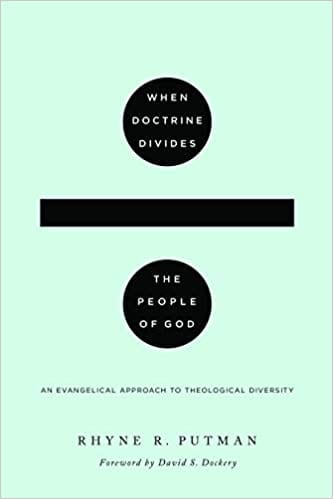BEN: As a student of church history it seems clear to me that ‘denominationalism’ is a product of Protestantism, of the Reformation. Before then, the Catholics were sure they were the one true church, and then when the schism happened with the eastern orthodox, the latter said they were the one true church. Clearly enough, denominationalism is not in the Bible. So, I am wary about claims that this or that denomination is the one true church, since they are all flawed, both practically, and in terms of theology and ethics as well. More helpful is the notion is that all genuine believers are one in Christ, one in the Spirit. My own experience of preaching and teaching all over the place, and even lecturing in the Vatican it was clear to me that there is a worldwide fellowship of Christ across denominational lines. We worshipped together, we sang together, we studied and listened together, we learned together, even though obviously there are differences in the various ways you describe. I don’t think we have to give up anything to have fellowship with any other genuine Christians. We just have to operate in love and be willing to think the best of other Christians. None of us have a stranglehold on the truth. For instance, Catholics focus on Unity with a capital U, and so there are not a bunch of Catholic denominations out there. But sadly, Truth is compromised to some degree in such a church. Protestants by contrast focus on Truth with a capital T, and don’t much strive for unity, though they wistfully moan about it. The emphasis is different, and sometimes it seems we Protestants think we should fulfill the Genesis mandate ‘be fruitful and multiply’ by creating new denominations. That would be bad exegesis. At the same time, leaving one denomination and joining another shouldn’t be seen as schism, unless one is joining say the Jehovah’s Witness. I would like to hear more of your reflections on these matters. Comments?
RHYNE: I recently returned to rural Arkansas to serve as the academic dean of my alma mater. Driving through these country highways, I can’t tell you how many churches I have seen pop up that are a new stripe of non-denominational. (Non-denominational churches are often just small D-denominationalists!) Their signs read things like this: “We are a Bible-believing church!” “We are the Spirit-Filled church!” “We are a church on a mission!” It’s pretty funny how many churches which are formed on a matter of small disagreement can pop up in a small town.
Without the ability to taxonomize doctrine by its importance, every difference in the perception of truth becomes a reason to split.
I think about Christian unity in a few different ways. There is, of course, unity in a local, congregational level where we have a shared, focus mission to a particular community. At this local level there will be some theological differences, unless you are in a fundamentalist context where every point of doctrine, including one’s view of the King James Bible or the timing of the rapture, becomes a major doctrine. In my own SBC context, outside of issues like baptism and local church autonomy, there is a great deal of freedom on third-tier matters. There is unity at a denominational level where we share in a common theological tradition and a common infrastructure with shared resources and institutions. Then there is a kind of unity that crosses denominational lines between Christians of different theological traditions, and for me, this unity is defined by the gospel itself. Where a biblical gospel is prioritized both in doctrine and in practice, we can be co-laborers in a community, even if there are different convictions between us about matters like ecclesiology or spiritual gifts.
I don’t think we will ever achieve the institutional unity so cherished by Roman Catholics in this life, in large part because Protestant theology invites so many interpretations of the Bible. McGrath called Luther’s contribution of putting the Bible in the hands of every Christian “Christianity’s dangerous idea” (after Daniel Dennett’s Darwin’s Dangerous Idea). While the Lord tarries, we will disagree about doctrine. But this should not lead us to fret. I agree with Vanhoozer when he writes, “I for one would be sorry if everyone thought just like me. I would deeply regret if there were no Mennonite, or Lutheran, or Greek Orthodox voices in the world” (Vanhoozer, “The Voice and the Actor,” 80).












